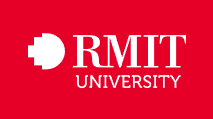Analysis of the Development Status and Countermeasures of Music Education for Special Children in Remote Areas
DOI:
https://doi.org/10.63313/IJED.9009Keywords:
Remote Areas, Music Education for Special Children, Educational Equity and InclusionAbstract
With the country's continuous promotion of educational equity and inclusive education, the issue of education for special children has gradually shifted from the margins to the core. Music education, as a unique form of education, has profound effects on the physical and mental development of special children. However, the development of music education for special children in remote areas still faces numerous challenges, such as the lack of systematic and personalized curriculum, teacher shortages, insufficient teaching resources, lack of family and social support, and outdated social perceptions. This paper, through field surveys and literature analysis, explores the root causes of these problems and proposes specific countermeasures, including improving curriculum design, enhancing teacher training, improving teaching resources, and promoting family and social support. The research shows that with policy support, social cooperation, and educational innovation, music education for special children in remote areas can achieve sustainable development, providing a broader stage for the comprehensive growth of special children.
References
[1] Liu, L. S., & Jin, H. Y. (2011). A brief analysis of music education for children with special needs. Heilongjiang Science and Technology Information, 2021(18), 208.
[2] Zheng, J. (2011). The importance of music education in the development of sensory per-ception in children with special needs. Dawu Stage, 2011(10), 162.
[3] Li, X. W. (2013). Research status of music education for children with special needs in mainland China (1995-2012). Music Panorama, 2013(10), 12-13.
[4] Han, J. Z. (2013). Educational psychology outline[M]. Beijing: People’s Education Press.
Downloads
Published
Issue
Section
License
Copyright (c) 2025 by author(s) and Erytis Publishing Limited.

This work is licensed under a Creative Commons Attribution-ShareAlike 4.0 International License.






















